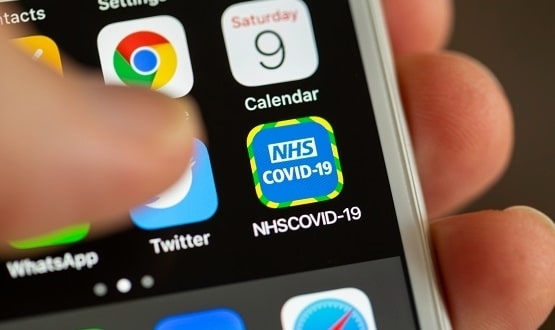An app for the next pandemic
- 5 August 2020

As the government is advised to improve its Test and Trace Programme, Dr Philip Scott, chair of the BCS Health and Care specialist group, explores how we can prepare for the next pandemic.
The idea of the NHSX contact tracing app for COVID-19 first hit us back in March, even before lockdown started.
As we now begin to emerge from the other end of the lockdown tunnel, over four months and £12 million later, it has all gone very quiet.
Depending who you believe, there are working trace apps in New Zealand, Germany, Latvia, Italy, Switzerland and Denmark.
Now there is even one in the UK – Northern Ireland – but not in England. The app is now conspicuous by its absence from ministerial pronouncements about the wonders of technology. There are even reports that the ethics advisory board for the app has been disbanded. What’s going on?
Data debate
There was, of course, the debate about whether data should be centralised or not, which to my mind is more about public perception than genuine risk (if the statements about what data would be collected were true). But that debate has been firmly won by the decentralised approach, so fair enough.
The UK government’s overall approach to the crisis has been widely criticised as chaotic, but I do have some sympathy with the view that this situation really was “unprecedented” (as every news story has reminded us for months) and there was inevitably a significant amount of making it up as you go along. App frenzy is arguably part of this reactive confusion.
Throwing tech at the problem
My impression is that the NHS tracing app is primarily a symptom of TTATP Syndrome (Throwing Technology At The Problem).
Tech is shiny, tech is the future, tech is the answer. Not always. Obviously, we need a sound technical infrastructure and we’ve seen a rapid uptake of tools to allow remote consultations, but the argument for the net value of a tracing app is by no means evidence-based.
The IT contribution to pandemic management is surely about data more than it is about new technology. We saw unforgivable delays getting sufficiently detailed data from the centre to local authorities, which of course had harshly reduced public health resources following years of savage funding cuts and the structural catastrophe of the Lansley “reforms”.
On a more positive note, HDR UK has done a great job of coordinating data and analysis in support of COVID-19 research.
Preparing for the next pandemic
How do we prepare for the next pandemic? Of course, there will eventually be an inquiry and “lessons will be learned” – but they will need to be learned more effectively than they were after all the buildings that burned down before Grenfell, or from the 2016 pandemic readiness simulation.
What might some of those lessons be? I would suggest two, based on the simple fact that pandemics don’t respect national borders.
- We should compare the effectiveness of varying international approaches to test, track and trace and independently evaluate whether any of the national or big tech apps really made a difference. We must not jump to standardising on technology, but rather should look for design principles and successful methods to engage public trust and participation and share data securely and rapidly. In my view, BCS and partners in FED-IP have an important role to play in starting this evaluation nationally, in collaboration with the global network of IMIA.
- PRSB and NHS Digital have done sterling work on Covid-19 information standards for the UK. Can this be quickly scaled up into global standards? Maybe there’s room for some simplification and negotiation to make it globally workable as a minimum viable product, but we need the frontline data to be rapidly available and interoperable.
If there is evidence that tracing apps are effective, then, by all means, let’s make that part of the pandemic toolkit. But regardless of that, there is definitely plenty we can do about the data.





1 Comments
I agree that there is much to be gained by collaborating with other countries – pandemics do not respect borders, and nor does much of the knowledge and knowhow that underpins healthcare. With respect to Health Apps in general, the CEN/ISO specification 82304-2 “Health and Wellness Apps – Quality and Reliability” building on on BSI PAS 277, provides a set of assessment questions, and a quality label that will allow Health Apps to be compared in a consistent way by consumers and healthcare organisations. The standards bodies provide an open forum for agreeing what the criteria should be and for maintaining the specification going forwards. The world is complex enough without every country and region defining their own health app assessment framework, and expecting health app developers to go through different assessment processes in every market. The draft of the international specification which will be out for review later this year will include an informative annex with specific guidance as to how the specification may be used for Contact Tracing Apps. That guidance should be informed by the national and international evaluations that are proposed in this article, and evidence of effectiveness is already key part of the assessment. For further information on CEN-ISO 82304-2 see: https://www.nen.nl/Standardization/Health-and-wellness-apps.htm
Comments are closed.